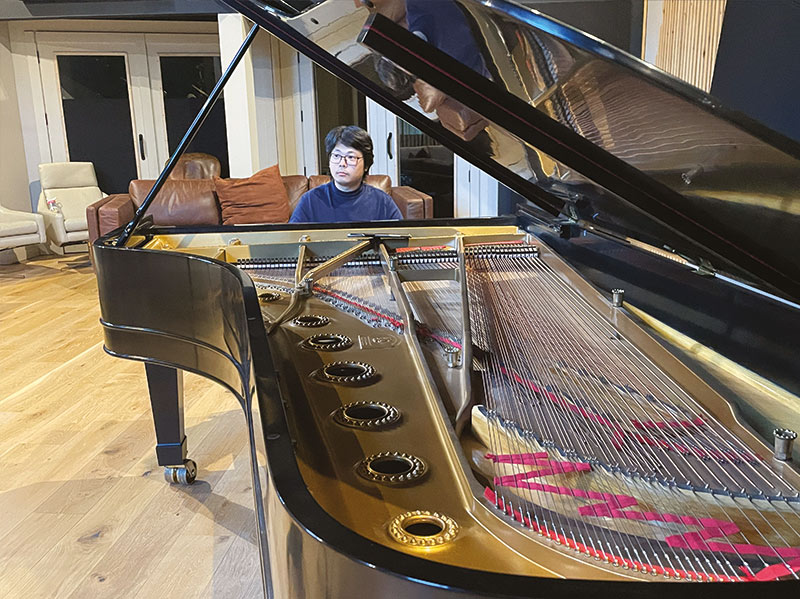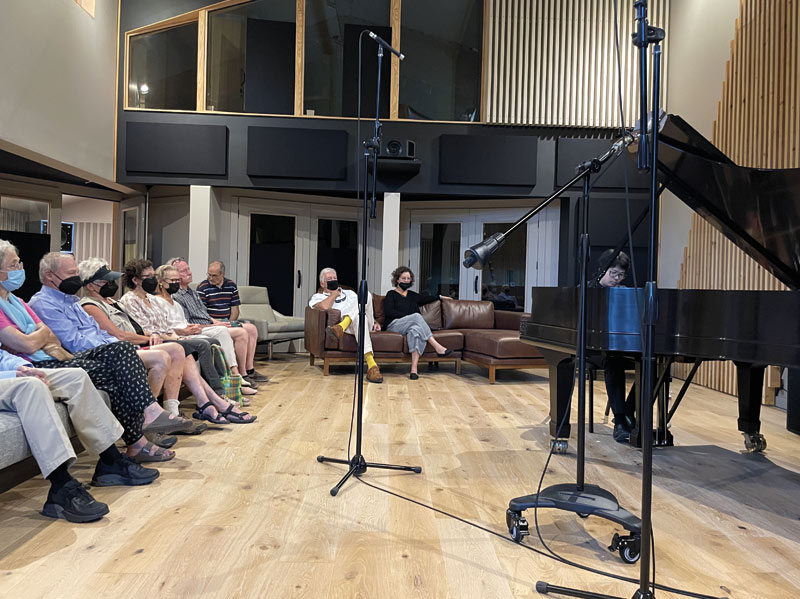Selected works for piano by F. Chopin and F. Schubert

Click on the name to see the biography
Kuok-Wai Lio, Pianist
Program
Prelude in C-sharp minor, Op.45 by Frédéric Chopin (1810-1849)
Barcarolle in F-sharp major, Op. 60 by Frédéric Chopin (1810-1849)
Nocturne in D-flat major, Op. 27, No. 2 by Frédéric Chopin (1810-1849)
Polonaise-Fantasie in A flat major, Op. 61 by Frédéric Chopin (1810-1849)
Intermission
Piano Sonata in G major D. 894, Op. 78 by Franz Schubert (1797-1828)
About the Musician
About the Music
Tonight’s program could be entitled Introspection and Improvisation.
During his lifetime, Chopin composed 27 preludes, and although he did not provide descriptive titles, each is a perfect distillation of a single idea. Dreamy and improvisational, the Prelude in C# minor, Op. 45 was written in 1941 while summering in the village of Nohant with his romantic partner, French novelist George Sands.
The Barcarolle in F# major, Op. 60, composed between 1845 and 1846, is one of Chopin’s last (and most technically challenging) major works. The rhythm and mood are inspired by Venetian boat songs, with which he would have been acquainted through their use in opera and other works popular at the time.
Between 1827 and 1846, Chopin composed 21 nocturnes - short, wistful, romantic pieces. Initially published in groups of three, his later nocturnes were written in contrasting pairs; the Nocturn Op. 27 No. 2, composed in 1846, is the second of a pair of contrasting works.
Chopin’s Polonaise-Fantasie Op. 61, completed in 1846, deftly combines the contemplative and improvisational nature of the fantasy with the strength and heroic character of the polonaise into a unified whole.
The last work on the program, Schubert’s Sonata in G major, was composed in 1826, just a year before the death of Beethoven, and two years before his own death at the age of 31. Schubert was heavily influenced by the artistic trajectory that Beethoven chose toward the end of his life, including a propensity for the introspective and personal. With its hymn-like chords and relatable melodies, Schubert’s Piano Sonata in G major also embraces the democratic ideals so boldly voiced by Beethoven.






